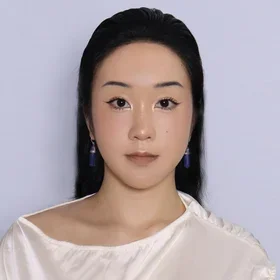Bela Fishbeyn studied Bioethics at Columbia University as part of the inaugural class of the school's M.S. in Bioethics graduate program. After completing her coursework, she was awarded a Fulbright Research Grant to Russia to work on her thesis. While in Russia, she investigated how the conceptual framework and moral attitudes behind Russian physicians' understanding of addiction might influence the design of addiction related health policy. She also holds bachelor’s degrees in philosophy and photography, each with highest honors, from UNC-Chapel Hill. To complete these degrees, she conducted research for and wrote theses on both the influence of pornography on moral judgment and the structure of Jewish-Muslim relations in Russia.
She works at the Stanford Center for Biomedical Ethics as the Executive Editor for the American Journal of Bioethics and the coordinator for the Benchside Ethics Consultation Service.
We spoke with her about her experience in the Bioethics graduate program and advice on getting your papers published in a journal.
What were you doing right before you enrolled in Bioethics?
Before starting the Bioethics program at Columbia, I was working for an attorney who helped healthcare professionals preserve their rights. I graduated from UNC-Chapel Hill with a B.A. in philosophy and in photography and I knew that I wanted to continue my education in a health-related field, and was considering going to law school. I was first exposed to bioethics as part of my undergraduate philosophy education and loved it immediately, but when I graduated, there were limited programs available for those wanting to study Bioethics and I wasn't sure how to pursue it.
The Bioethics program at Columbia was the pioneering program offering an M.S. in Bioethics and the only program at the time at an Ivy League school. The graduate program was also one of the only Bioethics programs with a specific focus on global bioethics, which was an area of particular interest to me.
The prestige of the university opens up so many doors....This access allowed me to form invaluable connections, including those that ultimately helped me win a Fulbright Research Grant.
What was the most valuable element of the program for you?
Honestly, the most valuable element of being a student at Columbia are the incredible networking opportunities. The prestige of the university opens up so many doors. I felt unrestrained in reaching out to various professionals and academics in my interested areas of research, both within the Columbia network and outside of it. This access allowed me to form invaluable connections, including those that ultimately helped me win a Fulbright Research Grant.
Tell me about your current role. What do you do?
I'm currently working as Executive Managing Editor for The American Journal of Bioethics, the leading journal in the field of bioethics. I don't think I could have hoped for a better position! It's such a privilege to work with both new and veteran authors within bioethics and to keep up with what's important in the field. I'm lucky to be able to work with David Magnus (EIC of AJOB) and consider him to be an incredible mentor, and I enjoy working with our entire editorial team. I've learned so much about the work that goes into a manuscript from start to finish, the peer-review and editorial process, and the publication process.
Don't be discouraged by rejections. There are often other ways of getting your work out there, including blog posts and social media.
As the Executive Managing Editor of The American Journal of Bioethics, do you have any advice for current Bioethics students looking to publish their work?
Yes! The best piece of advice I can offer you is to find a mentor who works within your area(s) of interest and serve as a research assistant or the like for their current project. It's difficult to get your first publication, and your chances are much higher if you're already working with an established author instead of trying to get a piece published on your own. Once you serve as a co-author for a handful of papers, you might find that you're ready to be a lead author. Your previous connections can help you because the more comments/edits you can get on your paper, the stronger you can make it.
Also, be sure to submit to a journal where your paper is a good fit. Read their manuscript guidelines, read previous issues, and don't be afraid to email the editorial team. If a journal doesn't publish empirical work, for example, and you submit an empirical paper, you'll likely get rejected.
Finally, don't be discouraged by rejections. You can look at acceptance rates of journals (AJOB's acceptance rate is around 16%) and you'll see that the majority of papers are rejected! There are often other ways of getting your work out there, including blog posts and social media. Also, for journals like AJOB, start off by submitting commentary proposals instead of full target articles.


